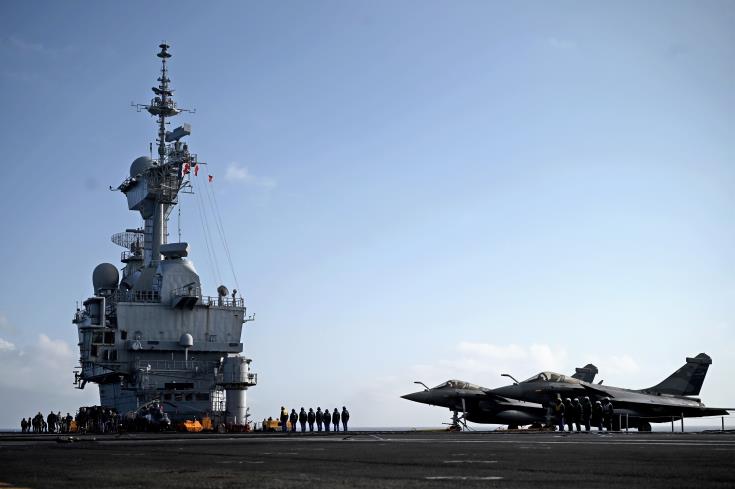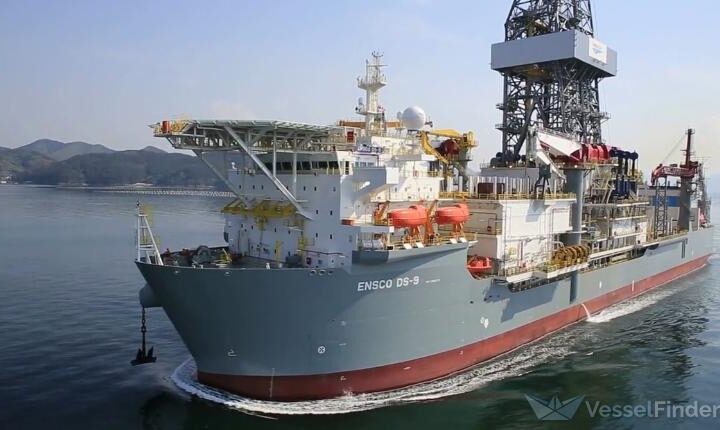Hidden behind a global Corona fog, East Med security is heading towards a major showdown.
Turkey’s president Erdogan’s current chess play seems to be better than the moves being made by other power players.
At present Ankara’s Libyan gamble, receiving increased European criticism is still looking bright, as no regional or global power is willing to confront the aggressive moves to set up Turkish military bases in the North African country while openly defying international arms sanctions and bringing in Turkish assets and proxies to fight against the forces of Libyan general Haftar’s LNA.
The Turkish moves are not being confronted by UN or NATO actions, as was shown last weeks when NATO navy forces in place to implement the international arms sanctions on Libya were forced by Turkish navy vessels to allow arms deliveries by Ankara to Tripoli.
This situation is a very critical one.
The aggressive Turkish naval forces action, which is officially part of NATO, against other NATO navy vessels, such as France, Italy and others, puts the North Atlantic Alliance at risk.
French President Macron has ordered the French navy to leave the international operation in Libyan waters.
Paris has openly requested an internal NATO inquiry on the Turkish operations against its allies.
This needs to be seen in the light of a growing and very dangerous confrontation in Libya between Turkish supported forces of the Libyan government in Tripoli (GNA) and the backers of Libyan general Haftar’s LNA.
Until now, the main backers of Haftar’s LNA are the UAE and Russia, but Egypt has openly entered the conundrum by warning that a further Turkish-GNA military move crossing the perceived red-line around Sirte would lead to full-scale Egyptian military involvement.
Some doubt the willingness of Cairo to enter militarily, but looking at the Ankara-Cairo confrontation, a doomsday scenario should not be dismissed.
Libyan developments also have a direct effect on the still fledgeling offshore East Med gas developments in Egypt, Israel, and Cyprus.
A possible military confrontation in Libya could lead to a military escalation in the East Med, where Turkish offshore operations next to Cyprus are a possible tinderbox.
Ankara’s Libyan involvement is linked and constrained by its operational options in the East Med.
The visit of Greek Foreign Minister Nikos Dendias to the eastern Libyan city of Tobruk, the self-declared capital of strongman Khalifa Haftar’s rival government is a sign of the interlinked developments.
Greek sources stated that Foreign Minister Dendias is holding talks with the speaker of eastern-based parliament, Aguila Saleh.
Officially, Dendias’ trip is part of efforts to broker a ceasefire between Haftar’s self-styled Libyan National Army and the UN-recognised Government of National Accord (GNA).
Haftar’s position is weakened after a defeat by the Turkish supported GNA in recent months.
However, Egypt, Russia and the UAE will not allow further military gains.
Early this year, Haftar visited Athens after the Tripoli-based GNA signed a maritime and security cooperation deal with Turkey.
The current chaos in NATO and the EU is not a promising sign for possible European or NATO support in case of unwanted Turkish action in the region.
A lot of analysis in the region has been focused on the perceived US/Washington support for the ongoing East Med economic and energy integration via the East Med Gas Forum.
US Senate and Congress have even supported some anti-Turkish moves, such as the end of military sanctions on Cyprus.
Washington, especially via its Thinktanks, such as Atlantic Council, has been painting a positive pro-East Med (Greece, Cyprus, Egypt-Israel) picture of economic, political and military support.
The latter, as has been stated by some, needed to be taken with a truck-load of salt, as the Trump Administration is again opening up to Ankara.
To rely on US-NATO or EU support in case of a regional crisis seems to be wishful thinking, which Erdogan already seems to have understood looking at his actions.
Shift in position
Since the beginning of June, a real thaw is seen in the relations between Erdogan and Trump.
Washington in a surprise move has openly given its support to the Tripoli-based, and Turkish-backed, Libyan government.
This needs to be seen as a dramatic shift in Washington’s East Med position, and a slap in the face of US allies such as Egypt, France, Israel, Greece and Cyprus.
It also puts some other relationships in doubt, such as with the UAE and even Saudi Arabia.
According to Washington, the main reason is Russia’s support for Haftar, but looking at the growing European support (France, Italy), Washington is on a potential collision course.
Even if Washington is only giving lip-service to the GNA, Ankara takes the opportunity to increase its position even further.
As Ankara wants to be the main regional power, any opening is used to its own advantage.
To set up Turkish military and naval bases in Libya will push the rest of the region to the brink.
NATO and the EU should do their utmost to counter and block the Turkish moves, which are only meant to destabilize the East Med further.
Turkey’s official statements of seeking access to energy supplies is a farce, as there is an oil and gas glut globally.
The Libyan issue is also linked to Syria, as both could set up a full-scale Turkish-Russian military confrontation.
Ankara seems to be gambling all, maybe even hoping that NATO will be involved if it is attacked.
The latter is out of the question, as an attack on Turkey outside of its territory, is not a NATO issue.
Mediterranean NATO members also will not comply with any such requests.
As long as Europe and NATO, both having its HQ in Brussels, are keeping a low profile without counteraction to Turkish moves, Greece and Cyprus are becoming hotspots for a Turkish military move.
Taking into account that Egypt, looking at East Med and Libya, is not willing to bend to Turkish pressure, the Mediterranean is heating up to levels that should worry all.
Ankara’s moves, painted as anti-Russian while sleeping on several levels with Moscow, is directly linked to distract attention from its main target, to increase its position in East Med and expand its maritime EEZ grab at the cost of Egypt, Israel and Cyprus.









